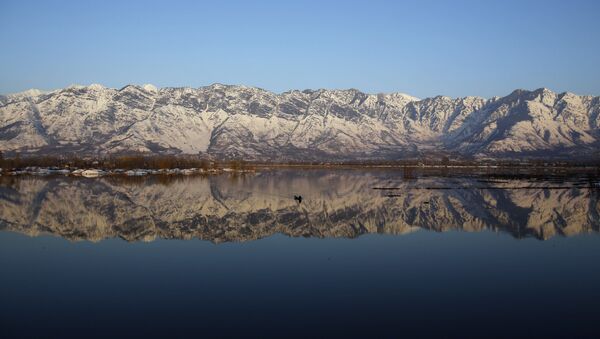The district remained relatively calm during the restive times that followed India's stripping Jammu and Kashmir of its special status. The last major terror strike in the area was in September 2018, when three terrorists and an army soldier were killed in an army anti-militant operation.
During the initial days of terrorism in Jammu and Kashmir, in the early 1990s, the Line of Control on the northern borders of the district served as a gateway for infiltrating militants.
“An uneasy calm prevails in the district headquarters, as it is completely cut off from the rest of Kashmir. There is no public transportation except for autorickshaws, and there are only some private vehicles on the roads. People are scared to talk to outsiders, fearing reprisal from security forces,” said a medical professional from Bandipore, who insisted on remaining anonymous. He claimed, this was not an isolated case.
“My paternal uncle is pro-Indian. He had defied the militant diktat and voted in past parliamentary elections, though no one from his locality ventured out. He has nothing remotely to do with terrorism. But he was called to the police station, kept there for the whole day and then let go only to be called in again the next day. This is not an isolated case,” added the medical professional.
A senior functionary of the State Police, however, denied the charges and said, the overall situation in Bandipore is peaceful.
“I do not believe the police would have summoned any innocent person. Certainly, the person would have some questionable background, for which he was called to the police station,” said the officer, who did not wish to be named.
Shops and other establishments have closed their doors in Bandipore, except for short intervals. They either open in the evenings or attend to customers through backdoors. Though there is no shortage of essentials, life has come to a standstill in the busy arterial market that goes through the district headquarters.
“The district has a sizeable population of the very poor, mostly fishermen who live on their daily earnings. They were badly hit since markets closed and there were no longer customers to buy their catch,” said a shopkeeper in the fish market.
The Wullar Lake, which touches Bandipore and Sopore districts, is the source of 60% of the fish yield in the Kashmir region. Around 10,000 fishermen earn their livelihood from this lake and supply good quality fish to the whole state.
Though schools are open, parents are still scared to send their children to school.
“After the government had asked the schools to reopen, we did. But the attendance is very poor,” said the owner of a private school, who preferred to remain anonymous.
Bandipore was the link between North India and Central Asia via the Silk Road. An old customs and immigration office is now a forest check-post.
The district also boasts two scenic tourist spots – Gurez Valley located high in the Himalayas about 90 kilometres from Bandipore and 150 kilometres from Srinagar and southern Gilgit-Baltistan in the Pakistan-occupied Kashmir. Another attraction is Athwatoo village some 15 kilometres from the district headquarters – a favourite destination for adventure tourists. Now, there are no visitors, and for those who relied on the tourist industry for their livelihood, it is likely to be a long wait.


